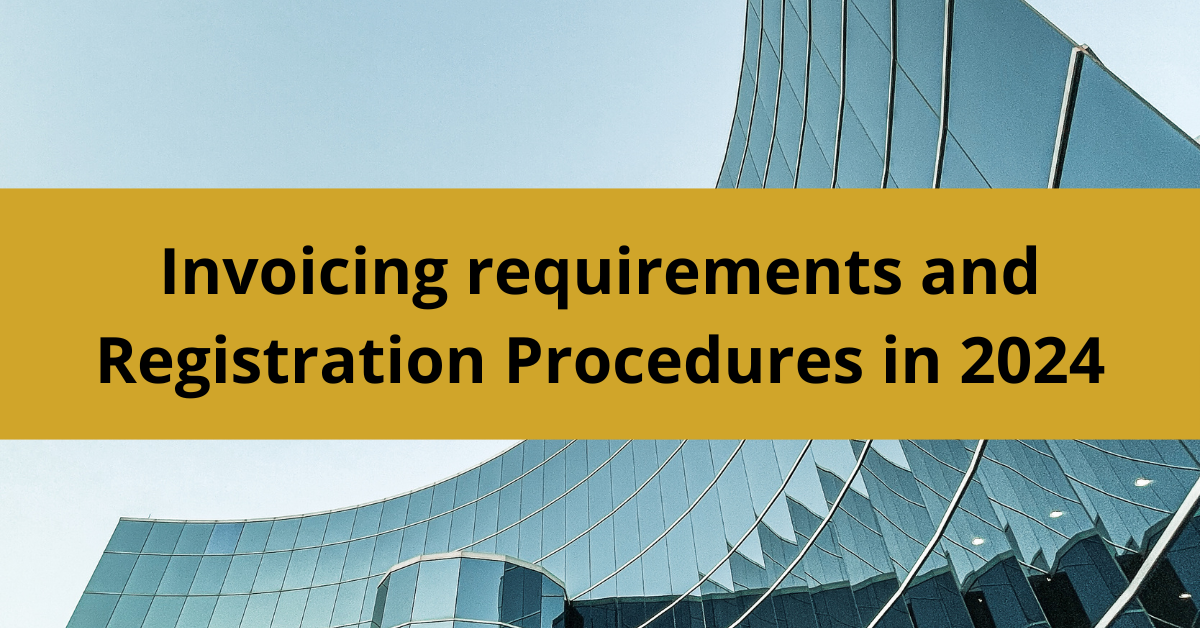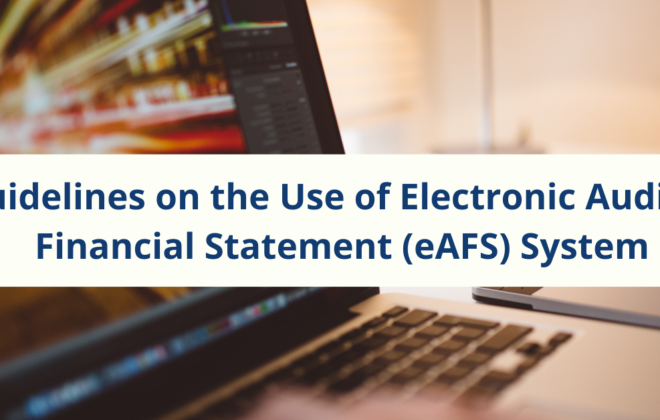Invoicing requirements and Registration Procedures in 2024
The Bureau of Internal Revenue (BIR) issued a series of Revenue Regulations (RR) to implement Republic Act No. 11976, otherwise known as the Ease of Paying Taxes Act, which aimed to make it easier for taxpayers to comply with tax regulations.
For now, let’s discuss the fundamental changes in the rules for invoicing requirements and registration procedures under RR No. 7-2024.
Invoicing Requirements for 2024
1. Issuance of invoice by all persons subject to internal revenue tax
All persons subject to taxes shall issue an invoice for the sale of goods and services under the following conditions:
- Regardless of amount if sold by a VAT-registered entity;
- For each sale worth P500.00 or more;
- For each sale, regardless of the amount if requested by the buyer
Provided that if the sales amount per transaction is below the threshold but the total sales at the end of the day is at least P500, the seller will issue one invoice for the total sales at the end of the day.
The threshold amount of 500.00 is adjusted every 3 years to current values using the Consumer Price Index published by the Philippine Statistics Authority (PSA).
2. Principal Invoice
Sale of Goods and Services Rendered: lnvoice
The word “lnvoice” is printed on the face of the invoice. An invoice can also serve as written receipt or confirmation of receipt of money. Thus, the term Cash Sales or Charge Sales, may be indicated in the invoices as checkboxes to reflect the type of transactions, at the seller’s option.
ln case the taxpayer chooses to have separate set of invoices for cash sales or charge sales, the word “lnvoice” may be printed to indicate the transactions, e.g., Cash lnvoice, Charge lnvoice, Billing lnvoice, Service lnvoice, etc.
However, the word “lnvoice” must be printed or larger than the word describing the transaction. Moreover, an invoice must either be: VAT lnvoice – for transactions subject lo VAT or Non-VAT lnvoice – for transactions not subject to VAT
3. Supplementary documents
Official receipts are now considered supplementary documents.
Other supplementary documents includes Delivery Receipts, Purchase Order, debit and/or credit memo, purchase order, Acknowledgement of Receipt, collection or cash receipts, bill of lading, billing statement, statement of account, job orders and other similar documents.
Supplementary documents are not valid proof of input VAT.
4. lnvoicíng Requirements for VAT or non-VAT registered taxpayers
The VAT invoice documents a transaction subject to VAT which serves as the basis for the seller’s output tax liability and the buyer’s input tax claim.
A non-VAT invoice evidences a transaction not subject to VAT which serves as the basis for the seller’s Percentage Tax Liability, if any,
5. lnformation to be Contained in the Invoice
Seller’s information is required as well as other information for VAT and non-VAT taxpayers. Refer to RR 7-2024 for the full invoicing requirements.
6. VAT invoice with lacking information
The seller or issuer of the VAT invoice issued to another buyer with lacking information required is responsible for non-compliance with the invoicing requirements.
The buyer/purchase will still be allowed to use the VAT amount as an input tax credit unless the missing information pertain to any of the following:
- Amount of Sales
- Amount of VAT
- Registered name and TIN of both purchaser and seller
- Description of goods or nature of services; and
- Date of Transaction
Books of Accounts and Other Accounting Records
All Books of Accounts, including the subsidiary books and other accounting records of companies, corporations, partnerships, or persons shall be preserved for a period of five (5) years from the day following the due date for filing the return, or from the date of the filing of the return, whichever comes later, for the taxable year, when the last entry was made in the Book of Accounts.
Registration Requirements
Below are the significant changes brought by EOPT Act:
1. Annual Registration Fee
The Annual Registration Fee (ARF} has been canceled and will no longer apply effective January 22, 2024. The existing COR that includes the ARF will remain valid even if the payment of the ARG is no longer required.
2. Cancellation and Transfer of Registration
The registration of any person will be cancelled or transferred merely by submitting an application for updating registration details electronically or manually in the prescribed format.
Cancellation or transfer of registration does not prevent the BIR from conducting an audit to determine any tax liability.
If the taxpayer transferring is subject to an audit investigation, it will be continued by the RDO that initiated the audit investigation.
Transitory Provision for Unused Official Receipts
Manual and Loose-leaf Invoice
Below are the options for manual invoicing taxpayers with respect to unused official receipts:
Option 1:
The principal documents for the sale of goods and services rendered will be invoices according to the EOPT Act, as amended.
The remaining official receipts will be supplementary documents of the taxpayer provided that the phrase “THIS DOCUMENT IS NOT VALID FOR CLAIM OF INPUT TAX” is stamped on the face of the document. The official receipt will serve as proof of payment.
Option 2:
The remaining official receipts will be converted to “INVOICE, which will be issued as primary invoice until December 31, 2024.
Taxpayers shall strikethrough the word “Official Receipt” on the face of the manual and loose-leaf printed receipt. It must be stamped with the word “lnvoice”, “Cash lnvoice”, “Charge lnvoice”, “Credit lnvoice”, “Billing lnvoice”, “Service lnvoice”, or any name describing the transaction.
These documents shall be valid for the application of input tax by the buyer/purchase for the period from January 22 to Dec 31, 2024.
All unused manual and loose leaf ORs to be converted as Invoice must be reported by submitting an inventory of unused ORs, showing the number of booklets and corresponding serial numbers.
Electronic Invoicing
- Any documents issued by CRM/POS/e-receipting or electronic invoicing software containing the phrase “Official Receipt” will no longer be considered valid for the buyer/purchaser to claim input tax credits once these new regulations take effect.
- Taxpayers utilizing CRM/POS/e-receipting/e-invoicing systems can change the wording from “Official Receipt (OR)” to “Invoice,” “Cash Invoice,” “Charge Invoice,” or another applicable invoice label without needing to notify the Revenue District Offices overseeing their business locations.
- The serial number of the renamed invoice shall start by continuing the last series of the previously approved Official Receipts and shall submit notice, indicating the starting serial number of the converted invoice, to the RDO/LT Office/LT Division where the machines are registered, in duplicate original copies. The receiving Branch RDO shall transmit the duplicate copy to the Head Office RDO.
The new invoicing and registration rules outlined in BIR Revenue Regulations No. 7-2024 represent a significant change aimed at promoting tax transparency and simplifying compliance processes.
While there are a number of requirements to comply with, the ultimate goal is to create a fairer tax environment and make it easier to pay taxes.
As with any major regulatory shift, there may be some disruption at first. However, taxpayers who are proactive in understanding the revised rules and seeking guidance from tax professionals will be better positioned for a smooth transition. A spirit of cooperation between taxpayers and tax authorities will be key to the successful implementation.
If you’re finding the new tax changes under Tax Regulations No. 7-2024 daunting, don’t worry—our team at DJKA Business Service, Inc. is here to help you smoothly adopt the new tax rules.
Just send us an email at info@djkaaccounting.com for more details.
Related Posts
Recent Posts
- New Features and Functionalities of the Online Registration and Update System (ORUS)
- A Comprehensive Guide to Taxation for Freelancers in the Philippines
- New Tax Laws in 2024: What Changes Filipino Taxpayers Should Prepare For
- How to Avoid Common Tax Mistakes in 2024
- Tax Deductions and Benefits Often Overlooked by Filipino Taxpayers





